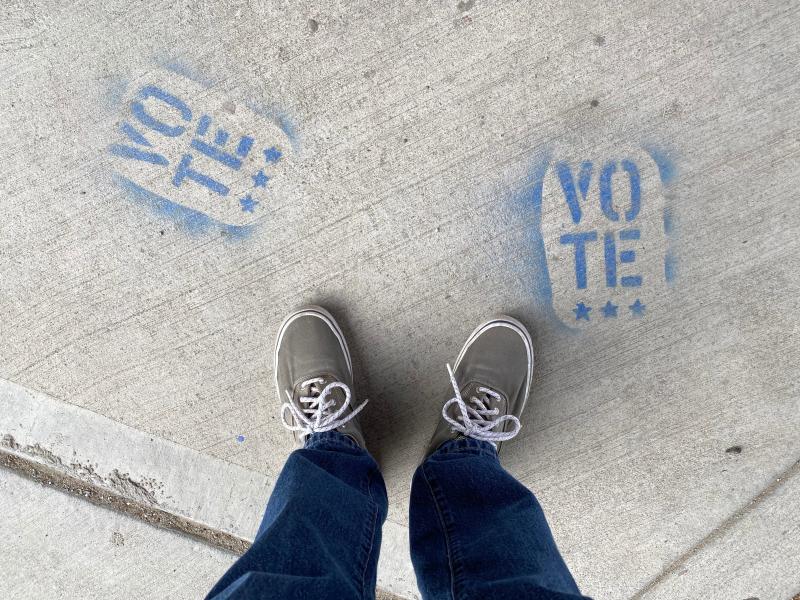Radical Democracy
By: Dr. Alena Wolflink | Assistant Professor, Department of Political Science

Dr. Alena Wolflink received a Community-Engaged (CE) Teaching grant to support her fall 2022 class, Radical Democracy, which partnered with the nonpartisan nonprofit New Era Colorado, an organization based in Denver that focuses on cultivating youth civic engagement and on voter registration and mobilization. The class explored questions about democratic agency and identity, including how democracy is defined, what it means to be civically engaged, and how deliberation and consensus but also conflict and antagonism play a role in democracy.
Infuriated at the Supreme Court’s 2022 Dobbs v. Jackson Women’s Health Organization decision to repeal Roe v. Wade, I decided to finally create my first community-engaged course this fall. Building on a decade of teaching various classes with citizenship, action, and political participation as central themes, I developed a new course, “Radical Democracy.” To put theories and practices of democracy into conversation, I partnered with New Era Colorado, a nonpartisan voter mobilization nonprofit with a specific focus on engaging youth voters and activists. Geared primarily for Political Science and Gender and Women’s Studies majors, this thirty-student upper-division elective course tackles problems in democratic theory.
Many theories of democracy attempt to move beyond procedural forms of democracy such as elections and representation and argue for more substantive forms of democracy in the form of deliberation, racial justice, and democratic agonism (or contestation). Yet critical approaches to procedural democracy can often leave students feeling apathetic when faced with the actual forms of government that structure their lives, and I wanted to give students a resource for enacting radical democracy from within admittedly less than democratic institutions. The result was a sustained engagement with voter registration and education in combination with theoretical readings and discussions about the limits and possibilities of democracy.
During five different class meetings, students split into groups to table on campus and compete to register the most voters in the runup to the 2022 U.S. midterm election. Together, they registered a grand total of 146 Colorado voters—a significant number, given the fact that some of the state’s key elections were decided by strikingly small margins, from the 3rd Congressional District race to the psilocybin bill. In addition to voter registration, students participated in voter education, which included creating nonpartisan voter guides that simplified state and city ballot initiatives, helping people locate their polling places, and answering questions about such topics as absentee ballots, registration requirements, how to register to vote in a different state, and election day procedures. We also looked for patterns in who registered to think about the limitations of voter registration alongside the possibilities of voter registration, and connected the patterns we found to our course readings. Some students voluntarily distributed voter information materials outside of class—for instance, on election day, two students who are involved in DU’s first generation student community gave a presentation at a meeting for first generation students to explain the stakes of various ballot measures, and then walked the group over to their polling station.
As part of our partnership with New Era, students also completed workshops with New Era’s Denver Regional Field Manager on being actively and civically engaged, on how to register voters (including the logistics of who can be registered where and what sorts of identification are required to register), on the importance of youth political engagement and agendas, and on how to continue to be politically engaged while avoiding burnout. After participating in voter registration and education, nearly everyone in the class said that they will commit to being more actively engaged in democracy, including at minimum paying much more attention to elections and political news.